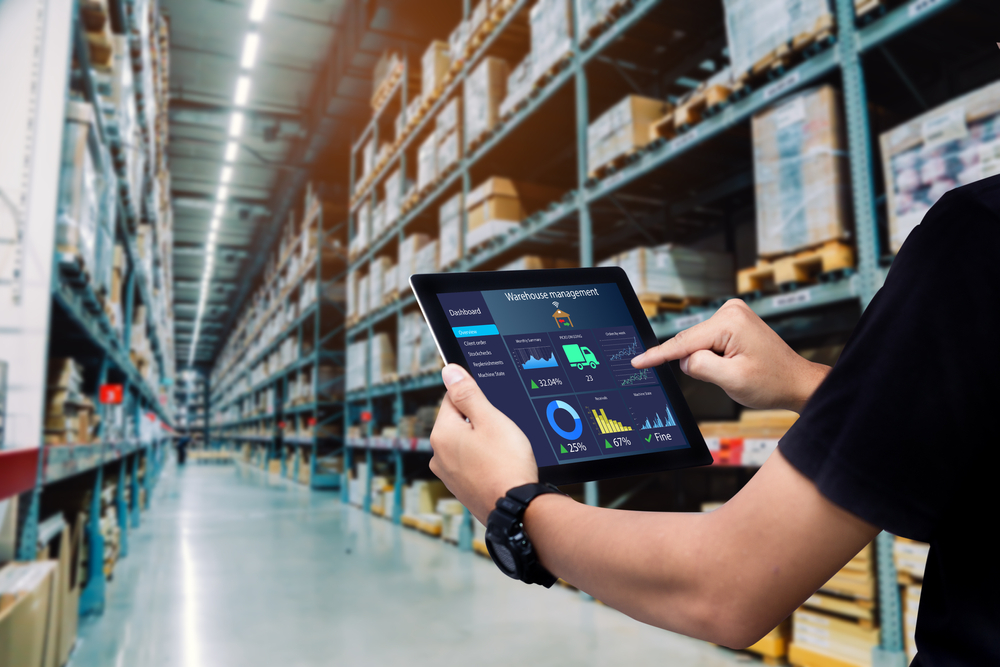Global supply chains have been making headlines—in some cases for the all the wrong reasons—since the COVID pandemic upended the world economy. A shortage of microchips, semi-conductors, and other crucial components has made logistics management challenging in many industries. Shipping products has becoming increasingly expensive as supply chain capacities are stretched to the limit. The recent spectacle of a skyscraper-sized container ship temporarily blocking the Suez Canal after running aground exposed another one of the weaknesses of global supply chains.
Companies engaged in logistics management can weather these supply chain crises by ensuring their processes are transparent and traceable. Doing so ensures they maintain their competitive edge and that they benefit in several crucial ways.
Reduce Waste and Inefficiency
Ideally, logistics management should be traceable enough for a company to record and follow its trail of products, parts, and materials as they flow in from suppliers, are processed, and ultimately distributed to end users. This would include any time-sensitive information on the components, quality, safety, and labelling of products, parts, and materials.
This level of traceability is critical for all industries, but especially for product chains that can suffer losses due to delays, improper cooling, or failure of temperature control equipment. Unfortunately, too many companies engaged in logistics management have not invested sufficiently in the technologies and processes needed for time-sensitive traceability such as digital bills of lading, or radio-frequency identification (RFID) systems. This often leads to massive waste of products. According to a recent study, up to one-third of food produced globally is lost between farm and fork because negotiating prices, preparing shipments, and paperwork often take too many days, leaving food to rot in place in ports and containers.
Logistics management companies that invest in accurate, timely, and end-to-end traceability measures for their supply chains can significantly reduce these and other types of waste and inefficiencies that dramatically impact Total Cost of Business (TCOB).
Enhance Environmental, Social and Governance (ESG) Efforts
Investors are increasingly applying environmental, social, and governance (ESG) factors as part of their financial analyses of companies’ potential for future growth. Logistics management companies that demonstrate transparency can assure investors, as well government regulators, that their products and supply chains are as sustainable as possible, and don’t endanger humans, wildlife, or the environment.
Consumers are also becoming more educated about global logistics. They continue to demand organic and fair-trade products but are also taking an interest in the entire supply chain process. For this reason, using shipping materials such as lightweight, durable, recyclable plastic pallets can significantly help businesses’ ESG factors. Lightweight plastic pallets allow for lower fuel consumption than heavier wooden pallets, lessening a vehicle fleet’s harmful emissions. Wooden pallets are also often disposed of in polluting landfills once they can no longer be used, whereas iGPS plastic pallets can be remade and reused, closing that particular supply chain loop. Supply chain companies that use sustainable shipping materials can turn transparency about their processes into a competitive edge.
Pick the Right Strategic Partners
In this economic environment it’s vital that supply chain companies pick the right strategic partners, whether these be suppliers, carriers, fulfillment centers, or even an on-demand warehousing company. Ideally, businesses should pick partners who engage in similar standards of end-to-end, real-time, traceable logistics management.
A company may choose to use the plastic pallets noted earlier as environmentally sustainable shipping materials, for example. But without the right pallet pooling company partner, these pallets could get lost or misplaced, causing waste or costly disruptions. The right partner should not only manage a pallet supply on a company’s behalf, but be able to digitally track the rented pallets in real time. This would ensure the pallets are shipped to other companies when not in use and replaced and recycled when needed. This traceability reduces the costs and complexity of pallet procurement and recovery, as well as a company’s overall Total Cost of Business (TCOB).
Supply chain companies continue to face a variety of crises and disruptions as the world economy recovers from the aftershocks of the global pandemic. Companies that prioritize logistics transparency and traceability can weather these crises and stay competitive in a post-pandemic economy.
Companies committed to supply chain transparency and traceability use iGPS plastic pallets for all their shipping needs. Our lightweight, recyclable plastic pallets help make greener supply chains and reduce your Total Cost of Business. For more information, contact us at 1-866-557-0047, email a specialist at switch@igps.net, or visit our contact page.



